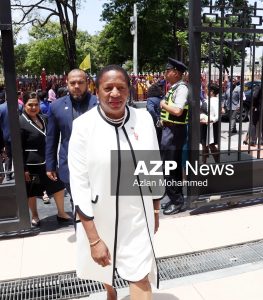By Ravi Nanga
THIS week we will continue to explore the course of a matter once it is filed in court.
In the last article we looked at the issue of filing a reply to a defendant’s defence.
The reply can either be filed with the defendant’s consent or with the permission of the court at the case management conference.
As we saw in the last article, once a defendant files his defence, the court will fix a date for a case management conference. If the court does not fix a date for the case management conference, the claimant is required to apply to the court to fix the date.
Once a matter is filed in court by the filing of a claim form and statement of case, the matter will be automatically assigned to a judge of the high court. When the court fixes a case management conference, this is essentially an appointment for a hearing before the assigned judge. Once a judge is assigned, the matter remains with that judge for the entirety of the matter.
The case management conference is an important event, as there are certain steps that can only be taken either before or at the first case management conference. For example, parties can make changes to their filed documents (for example the statement of case or defence) without permission of the court before the first case management conference.
Although the first date fixed for the case management conference signals the beginning of the first case management conference, if that case management conference is then adjourned without progressing the matter, the first case management conference continues until the matter is progressed.
Once the court makes certain orders towards progressing the matter towards the trial, that will signal the end of the first case management conference and the matter will progress to the second and subsequent case management conferences.
The case management conference is a feature of the Civil Proceedings Rules and is designed to give control of the matter to the court, as opposed to the litigants.
Under the old rules of the Supreme Court, based on how the matters were managed, different aspects of the matter could be heard before a number of different judges and it was possible for the matter to become “lost” in the system.
As such, when the Rules of Court were changed, this feature of a case management conference and assigning the matter to a single Judge were adopted in order for matters to be managed more efficiently and to cut down on the delay that plagued matters that were dealt with under the old Rules.
Another feature of the Civil Proceedings Rules is that it requires the parties to the matter, that is the claimant and the defendant, to appear at the case management conferences. This is so that a litigant will be aware at all times what is the status of their matter.
At the hearing of the case management conference the court will start to manage the matter and will give various directions towards the eventual hearing and determination of the matter. Further, the parties will be able to make certain applications at these case management conferences in order to progress the matter, as circumstances may dictate. In the subsequent articles we will explore some of the normal orders that can be made at the case management conferences.
Ravi Nanga is an attorney
[Please note that this article is intended only to provide general information on the topic being addressed and should not be taken as providing legal advice. In order to be properly advised it will be necessary for an attorney to examine the relevant documents and obtain the necessary instructions before properly advising as to rights and obligations.]
![]()













